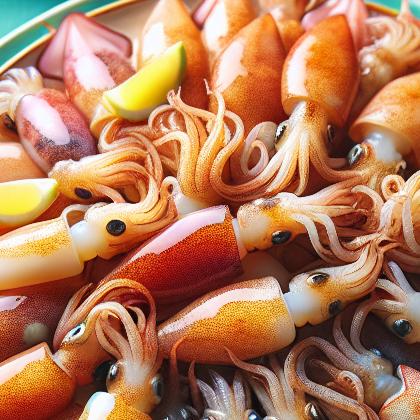Showing results for 'Baby squid'
close
Baby Squid

In many of the languages around the Mediterranean sea, squid are referred to by a term related to the Italian "calamari" (singular "calamaro") from the Greek word "καλαμος" (calamos) meaning inkwell, which in English has become a culinary name for Mediterranean dishes involving squid, especially fried squid (fried calamari).
Baby squid Properties:
| Food Property | Type | Description |
|---|---|---|
| Flavor Profile | Umami | Baby squid has a rich umami flavor, often described as savory and meaty. |
| Texture | Tenderness | Baby squid has a tender texture when cooked properly, making it easy to chew. |
| Nutritional Value | Macronutrients | Baby squid is a good source of protein and low in fat. |
| Micronutrients | Baby squid is rich in essential nutrients such as vitamin B12, selenium, and zinc. | |
| Color | Natural Pigments | Baby squid has a natural pinkish-red color when cooked. |
| Aroma | Volatile Compounds | Baby squid has a mild seafood aroma that becomes more pronounced when cooked. |
| Chemical Composition | Water Activity (aw) | Baby squid has a relatively high water activity, contributing to its moist texture. |
| Cooking Behavior | Heat Conductivity | Baby squid cooks quickly due to its high heat conductivity. |
Food Pairing App - Version 1.2.0
